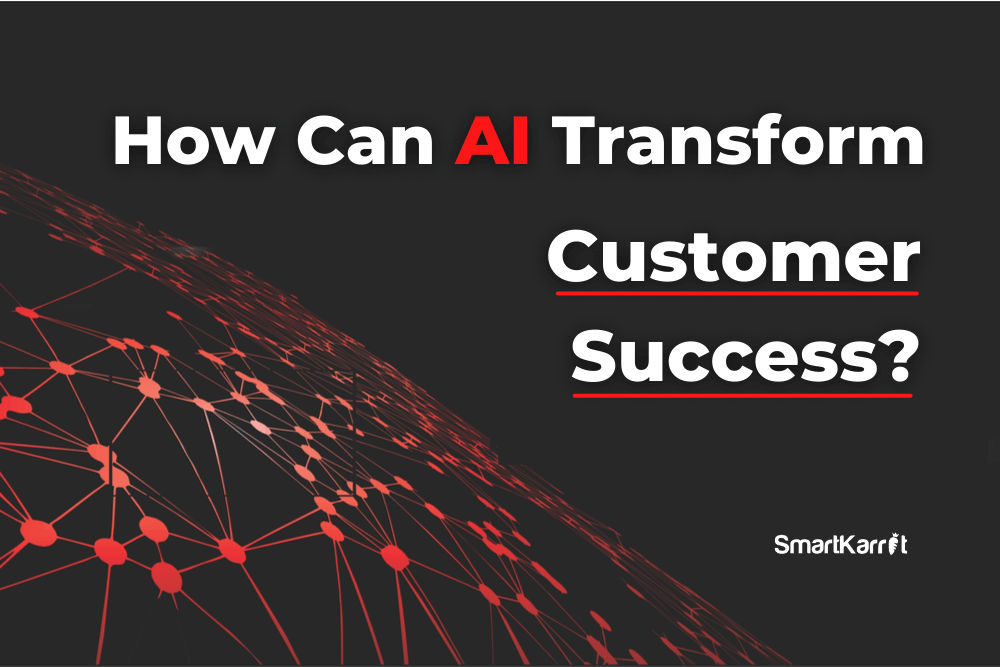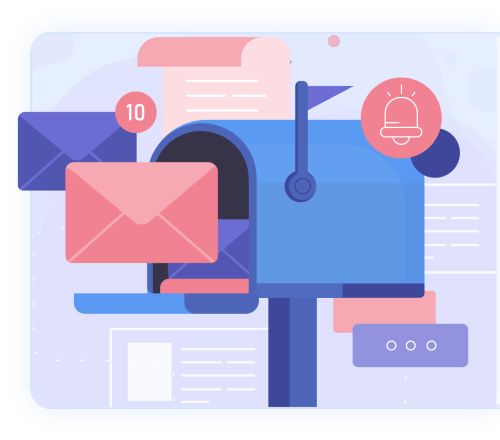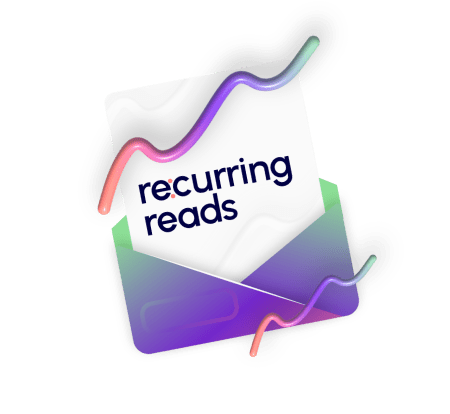How Can AI Transform Customer Success?
In this blog, we will discuss customer success from the perspective of a B2B SaaS company and how AI can ensure better customer success.

Customer success has a vital role to play in any B2B business. Today, businesses have become quite aggressive, which has become very challenging to compete with customers.
Fortunately, AI has come to the fore. It gives a definite edge over your competitors, which results in better customer success.
As a result, we see more and more B2B businesses across the globe extensively using this amazing technology to maximize their benefits.
In this blog, we will discuss customer success from the perspective of a B2B SaaS company and how AI can ensure better customer success.
Let’s get started with the definition of customer success.
What exactly is customer success?
Customer success is an umbrella term that covers the entire customer journey. Typically it starts with purchasing a product or service, goes through customer onboarding and deployment, and ends with post-contract service/maintenance. Thus, we can define customer success as “the set of activities that enhance the value of the customer relationship with their purchase.”
In other words, customer success can be defined as the efforts taken to help the customer achieve their goals, minimize any impact on their activities and ensure that they continue to use your products and become advocates.
Key metrics to measure customer success
Here are five primary metrics that can help you measure customer success:
1. Customer satisfaction. Customer satisfaction is an important metric whether you measure this directly or through Net Promoter Score (NPS). It’s often the first indicator that tells you whether customer success efforts are performing as expected, and it’s a critical metric to track over time.
2. Customer retention rate. Customer retention rate measures the percentage of customers who remain active on your customer database over a few months. If you’re not actively tracking it, you won’t know how effectively your team engages customers.
3. Customer average revenue per user (ARPU). ARPU is a key metric for SaaS companies, but it also applies to products with a recurring subscription fee. It tells you the average revenue generated by each customer.
4. Customer lifetime value (CLV). CLV is the average revenue generated by a customer throughout their entire relationship with your company.
The importance of customer success
The importance of customer success for a business is paramount. If you assume that customers are for life, then customer success must be an ethos of your business, not just a cog in the wheel. This implies that the quality of service, product, and the quality of experience your customers enjoy with your business is crucial to its long-term success.
Furthermore, customer success provides the following benefits to a business:
1. Improved customer relationships
Customer success drives better customer relationships. It improves your ability to listen and understand what your customers need.
2. Increased customer loyalty
Customer success helps you retain customers. It enables you to understand which customers are most likely to churn, so you can take action to keep them.
3. Increased customer lifetime value
Customer success helps you increase customer lifetime value. It allows you to win customers that buy more, spend more, and make less churn.
4. Increased repeat business
Customer success increases repeat business. It helps you win back customers if you lose them, enabling you to win new customers.
How can AI transform customer success?
Effectively target customer experience
The customer experience (CX) is the sum of all interactions with a company — from their first contact with a company to when they say goodbye.
Today’s consumers are more empowered than ever, which means their expectations are high. If those expectations aren’t met, they’ll leave and never come back.
AI can help companies meet those expectations. For example, it can target the right customers with the right messages at the right time and predict which customers are likely to leave.
Using AI-enabled customer success to achieve customer success
Customer Success technology has evolved from helping companies manage their customers to manage their customers’ success better. Fulfilling customer promises requires excellent communication, strong relationships, and a holistic understanding of each customer’s business.
In addition, customer Success leaders need to be strategic, adept at managing a wide range of stakeholders, and evaluate, design, and implement solutions that help customers achieve their business goals.
But as Customer Success has evolved, so have the tools to manage it. For Customer Success to thrive, tools must evolve along with it.
CRM technology, the backbone of Customer Success, is ripe for modernization. While it has served Customer Success well for years, AI-enabled customer success can reinvent customer success.
AI-enabled customer success empowers customer success leaders to deliver contextual, personalized, and proactive customer journeys — and to do so at scale.
It integrates sales and marketing actions into customer conversations and other activities designed to influence customers’ perception of your company and the value it provides.
Utilizing smart chatbot to transition from customer support to customer success
Customer success teams are responsible for driving retention and adoption. To do that effectively, they need to ensure customers feel supported — from onboarding to product usage to advocacy. Unfortunately, customer success teams tend to use a lot of data to make those judgments. Still, AI and machine learning can turn data into actionable insights, and chatbots can turn that insight into interaction.
For example, chatbots can automate onboarding and product information, helping customer success reps spend more time helping customers. A chatbot can also provide quality customer support and proactively reach out to customers.
Chatbots can collect data on customer interactions and automate the process for customer success teams. For example, they can set up reminder emails for customers to complete training modules or send recommendations for other training resources.
Chatbots can also help customer success reps monitor the success of customer tactics such as user conferences and product demos. They can share meeting notes with the rest of the team and follow up with attendees.
Create a wholesome knowledge-base management
You probably have data everywhere — from your team’s daily activity to customer conversations. But often, this data exists in disparate systems, making it hard to track, measure, analyze, and translate it into insight.
That’s where AI can help. By analyzing mountains of data, it can synthesize it into valuable insights.
An intelligent and adaptive knowledge base is highly significant for better customer success. AI can automate collecting, organizing, and accessing customer information, helping companies deliver more personalized service, create more efficient workflows, and streamline operations.
Improve customer success automation
Customers are at the heart of every successful product, so companies must make it easy for customers to find, use, and get the most out of their products. In addition, the best products provide engaging customer experiences, which result in positive word of mouth and advocacy.
But it’s not always easy for product teams to anticipate how customers will use a product or identify how customers prefer to interact with a product.
AI is helping companies better understand their customers by powering customer intelligence solutions that enable them to collect and analyze customer data and automate customer success.
- More than ever before, modern companies use AI to analyze customer data to identify patterns, predict trends, and determine customer needs.
- AI tools help customer success teams personalize customer interactions at scale and provide personalized, targeted support.
- AI-powered customer intelligence solutions help customer success teams improve the customer onboarding experience, which accelerates product adoption and success.
Finding AI-powered customer success for your SaaS business
AI can prove to be a catalyst when it comes to maximizing the benefits from customer success. With its help, your customer success team can open new avenues by making insights that can bring in value for your B2B organization.
At present, companies are still trying to find ways to make AI prove beneficial. But, in the near future, we see a lot of potentials for customer success teams to ensure maximum utilization of this technology to its advantage.
You might also like:
- Conversational AI for Customer Success – What is Conversational AI and what are some of its shining benefits to the Customer Success niche? Find out!
- To see how SmartKarrot helps B2B companies streamline and scale customer success, Request a Demo.









